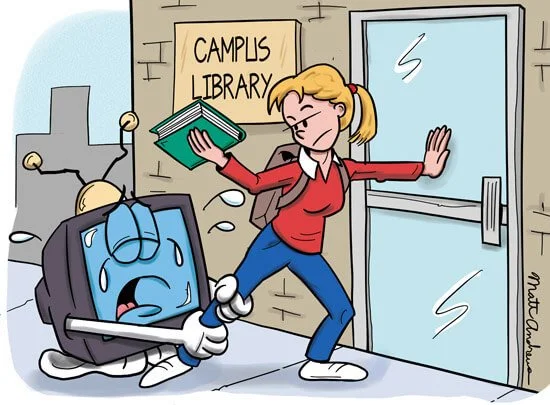Study Habits & How to Form Them
For any student, studying can be one of the more challenging aspects of school. It’s difficult to figure out what exactly you need to study for, let alone find time in a busy schedule, and also find the right location to study. And how do you do this multiple times a week?? It’s a process, and one that people don’t learn. Yes, you read that right- in order to study, you have to learn how to study. It may sound like a paradox, but keep reading, and you’ll see why it isn’t.
So where do you start? The first step I often recommend is to figure out your learning style. There are four categories: visual, auditory, reading and/or writing, and kinaesthetic. Visual can be studying graphs, looking at pictures or diagrams, or watching videos. Auditory can be listening to videos or a lecture. Reading/writing can be transcribing given information in your own words, or re-reading notes you’ve taken. The last style, kinaesthetic, is learning by doing, such as going to labs for a science class, working with your hands, or even using repetitive movements you associate with what you’re studying.
Everyone has a learning style, and you may have different styles for different subjects. I, for example, have an auditory learning style when it comes to being able to recall lectures, but I have a kinaesthetic learning style when it comes to learning how to use tools for projects. These learning styles also connect to professor’s teaching styles, as some teach in an auditory way (lectures), while others may give a kinaesthetic method in a lab, while another teacher might have you read articles.
But what do you do if your professor’s style is vastly different from yours? A friend I recently spoke to mentioned fidgeting in a lecture class- as a kinaesthetic learner, it was hard for her to absorb information just by listening. So, in order to study effectively, she would make flashcards, as the physical flipping of the cards would help her retain information better. And that’s the basis of learning how to study: figuring out which ways of learning work best for you.
And yes, it takes work- sometimes, to have the most effective method of studying, you’ll have to make a long Quizlet, or walk around a room while reading notes, or transcribe long lectures. But the hard work is worth it, as studying will just get easier and come more naturally to you over time. Believe it or not, cramming overnight doesn’t usually get you good grades, so a first habit-forming step is taking a short amount of time out of your day/week to study, be it fifteen minutes to an hour or even just five minutes of review. By doing it on a regular schedule, you’ll get used to it, and soon it’ll become a real habit.
Another habit to form is finding a good space to be in. Aka, don’t study on your bed, no matter how tempting it may be, as your mind will start to associate it with sleep and studying (but I guarantee you’ll focus on wanting to sleep more). Additionally, another habit to think of is setting your phone on Do Not Disturb, or not using it at all when studying. I, like everyone else, fall victim to the “one more video” rabbithole, which causes me to end up staying on Youtube for an hour when I was supposed to study. Distractions can seriously hinder your studying experience, so limit them as much as possible- including your friends, too, unless you really, truly do study better with other people. But chances are, going to study with your friends won’t give you the environment you need to concentrate.
When it comes to a challenging upper-level class, or just a subject that you don’t feel super confident in, it’s important to recognize resources. One of the best sources for help understanding is your professor- I have yet to hear of a student being told no when asking for help; in fact, professors are elated to help. You can also ask other people in the class for help, and in return help them too. (Of course, this is not giving each other answers; rather, this is explaining concepts in a way the other person can understand. Don’t cheat. Ever.)
If you’re still struggling, there are two other great sources you can utilize, both found in the Learning Commons of Magale Library. Peer Consultants are available to help with specific classes/subjects- all you have to do is sign up for an appointment. Additionally, if you’re more so struggling with studying as a whole, you can speak with a Peer Mentor, who are here to help you both with academic things and just general college aspects. And it’s super easy to make repeating appointments with both Mentors and Consultants. Overall, though, communication is the key habit to take away from your sources: no one can help you if you don’t ask, so also get into the habit of asking for help. It’s not an easy one, because few people genuinely enjoy asking for help, but it’s important.
Studying is no easy feat- many students don’t even develop real study skills until college, and even then, it’s difficult to maintain a consistent schedule, and in the proper atmosphere, and with the right learning style, and to ask for help. But, like all skills, you won’t figure out how to perfectly study in one day. Let it take time, and let yourself falter so you can know what works for you and what doesn’t. It’s a process, but one that is extremely rewarding in the end. So good luck, and happy studying.
(If you’re interested in making an appointment for a Peer Mentor or Learning Consultant, please go here: https://mycentenary.sharepoint.com/sites/lc/SitePages/Make-an-Appointment.aspx)




